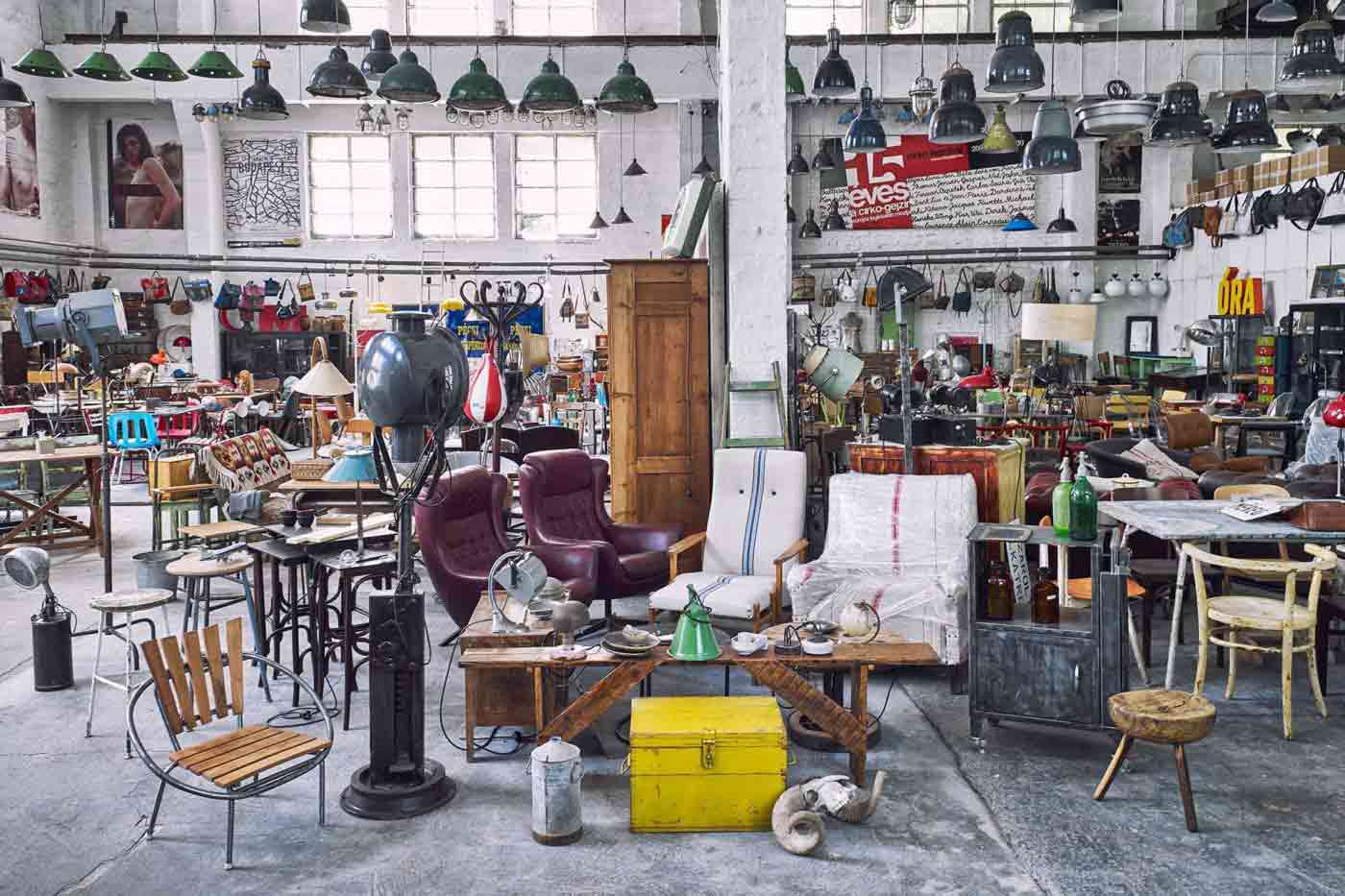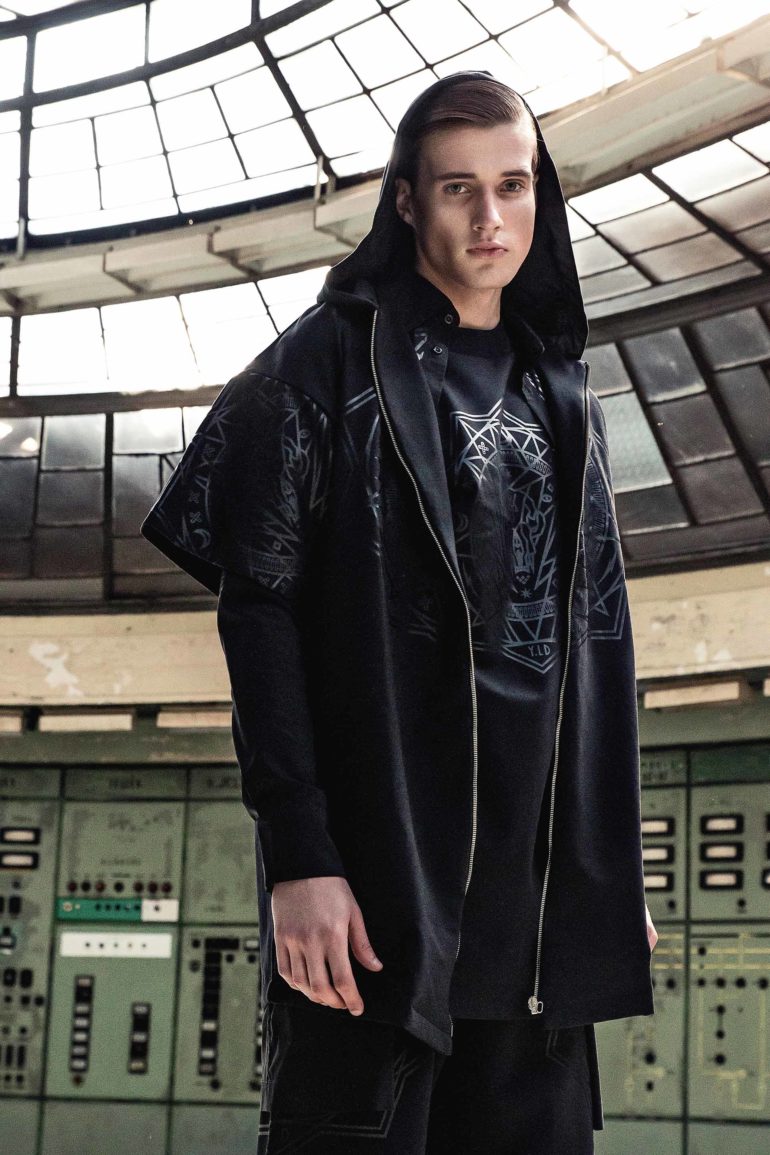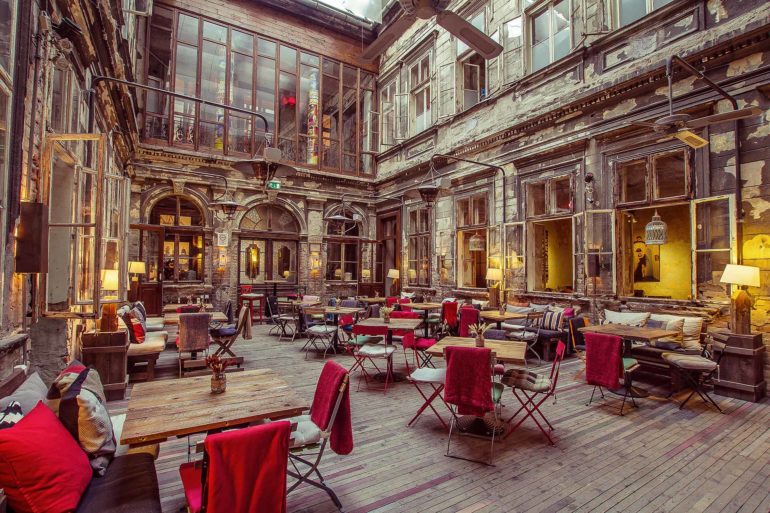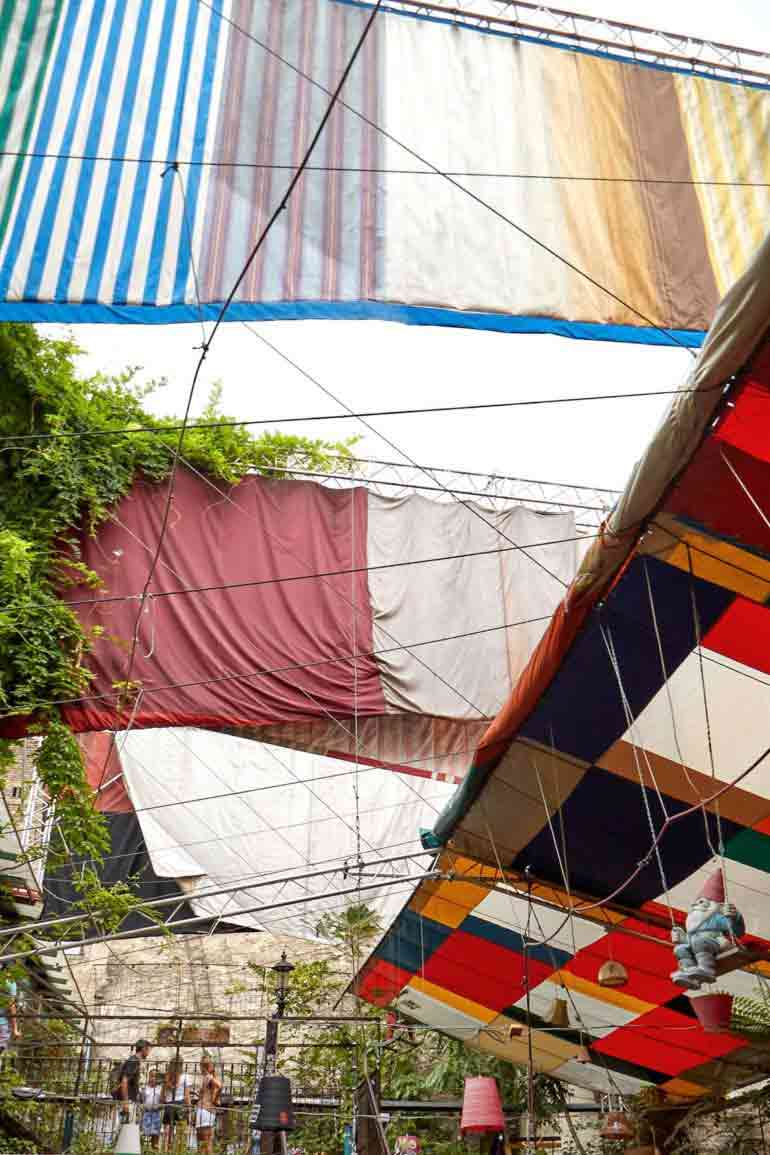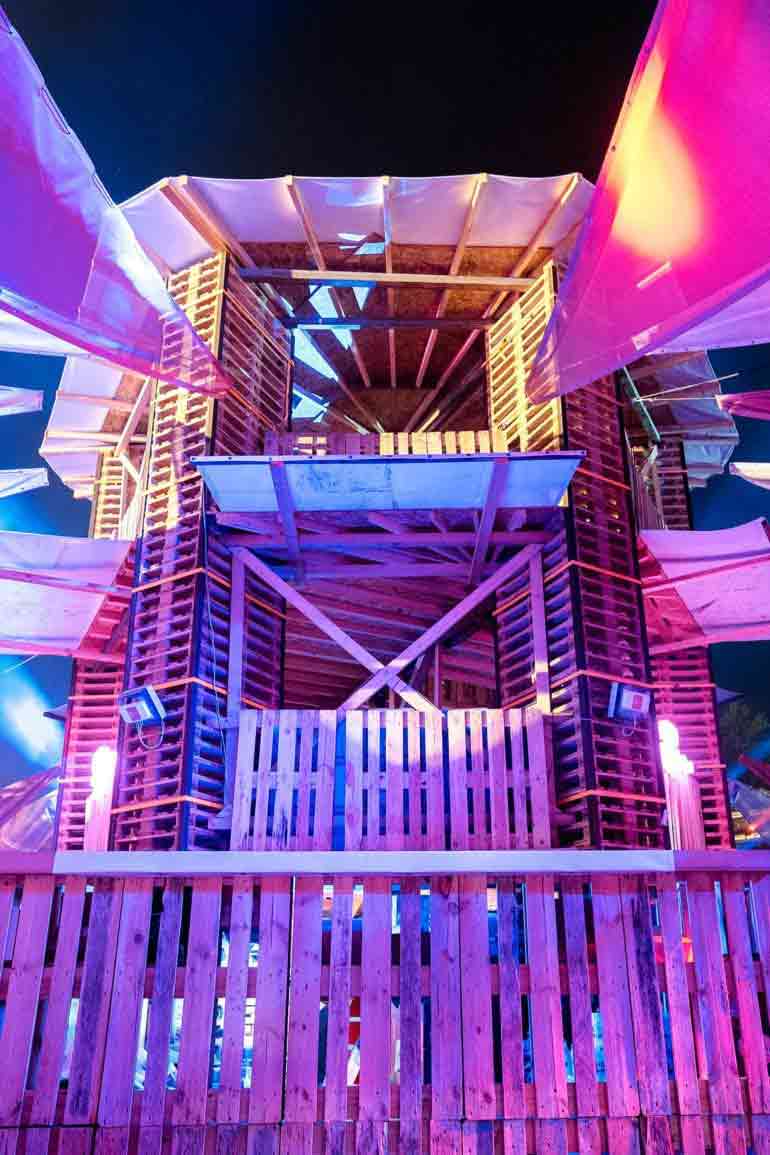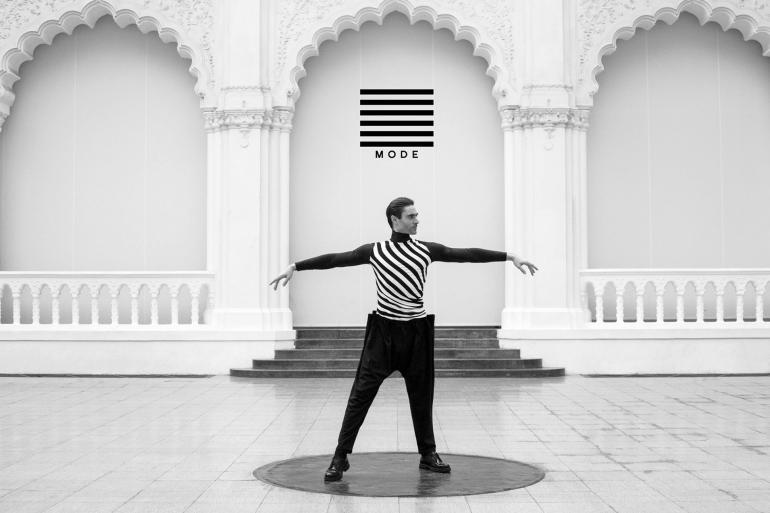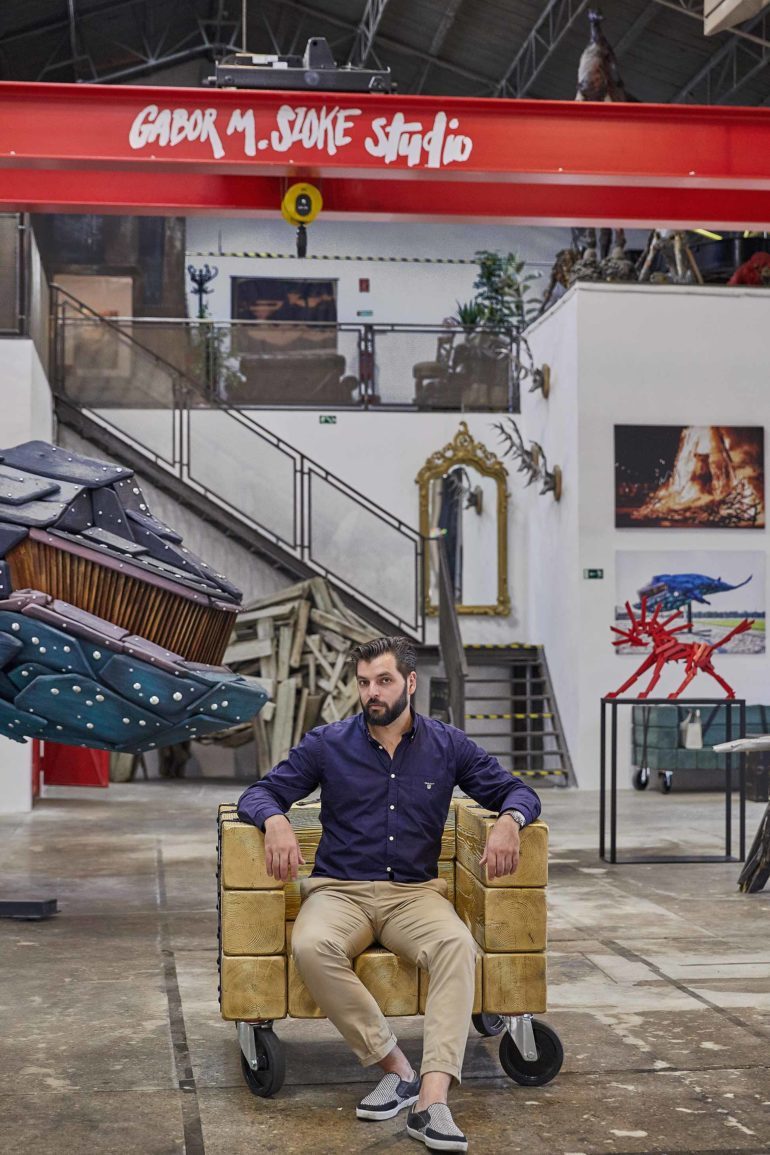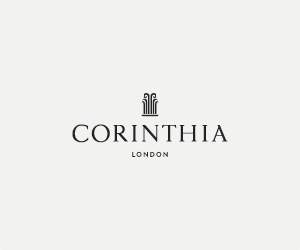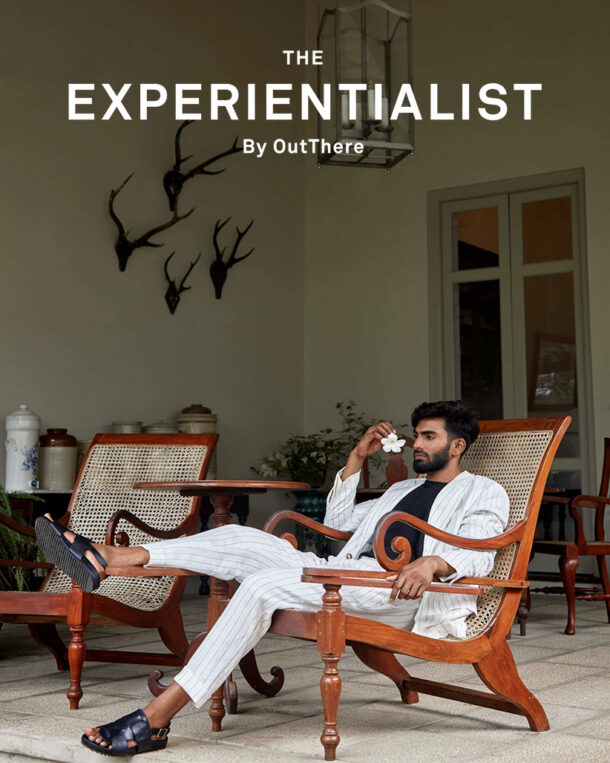It is the businesses and brands that have combined a quantum leap in quality with a loving respect for the homegrown roots of Budapest’s aesthetic that achieve the most authentic success. So, while the original design intent of the first ruin bars has inspired a new wave of studiedly scruffy, lo-fi venues in District VIII, it has also been polished into a more refined expression that defines a new look for luxury. Hubert Hlatky-Schlichter’s upmarket Kiosk restaurant is a fine example, serving expertly executed Hungarian comfort-food classics amid exposed brick, distressed plasterwork and mismatched furniture in a huge, double-height dining room. The Brody Group, brainchild of two expat Londoners, also strikes a perfect balance in its venues across the city. From the boutique hotel Brody House to the club/restaurant/event space The Studios to holiday/event rental The Writer’s Villa, its spaces are immaculately configured for today’s aspirational, always-on worker/traveller/socialiser, balancing the essential luxuries of space, high-quality amenities and on-tap culture (witness the packed entertainments programme and for-sale collections of artwork on the walls of its venues) with a rarefied take on ruin chic.
To return to menswear, Dóra Zsigmond creates garments so ambitiously conceived and beautifully made they belong in any fashion-forward location. Yet, a closer look reveals authentic folk influences evoking her village roots and traditional craftsmanship combined with fresh, edgy urban elements. A further tip of her hat to Budapest’s troubled and eclectic cultural roots can be found in collection titles that include ‘Salvage’ and ‘Dispossess’.
Gábor Miklós Szőke is a sculptor whose monumental outdoor animal works have won him permanent commissions in public squares in Washington DC, Moscow, Vienna and Rome. And yet he chooses to stay in Budapest, tellingly making a pioneering move into the Csepel district, an industrial area which announcements of regeneration funding and a new world-class stadium for the 2023 World Athletics Championships suggest will be Budapest’s next creative quarter. And while his sculptures and Dante Home range of furniture can tend towards rock-star grandiosity, his homewares bear unmistakable Budapest motifs, both in repurposed industrial materials and beautifully folksy hand-drawn fabric prints.
A simpler, sunnier relation of District VII’s DIY aesthetic has popped up by the river. Neighbouring Fellini Római Kultúrbisztró and Nap bácsi in the northerly District V are beach café bars on the Danube’s left bank, where you’ll find locals eschewing the polished, tourist-oriented riverside spots downtown for deckchairs, mellow DJ sets and cocktails and snacks served from cabins under the trees.
This aesthetic is something Budapesters are amply supported in carrying through to their own home spaces. And while Ecseri remains the bargain-digger’s source of choice, several outstanding stores have elevated industrial-design salvage to an art form. Run by interior designer Katalin Baracsi, the labyrinthine Buda store artKRAFT bristles with pleasingly chipped industrial light fittings, 1960s and 1970s furniture, contemporary artisanal ceramics and quirky one-offs. Filip, meanwhile, is the recommendation of Dóri Tomcsányi, as much for its laid-back programme of film screenings and pop-up markets as its cool, mid-century-tinged homewares.
But perhaps the best example of ruin chic’s evolution in the context of Budapest’s new confidence is creative architecture and design studio Hello Wood, a highly collaborative network of creatives who make socially and environmentally conscious public artworks and spaces. Upcycling, repurposable design and community engagement are its guiding principles and these in no way compromise the beauty of the pop-up and permanent installations that frequently adorn the city. Repurposable Christmas trees made of sledges, lightboxes or logs helped it win high-profile commissions in London and Zurich. It’s not going anywhere, though. With almost every project, it deepens ties with the communities it seeks to benefit as well as delight.
Of the city’s ongoing design journey, perhaps Dóri Tomcsányi says it best: “In Budapest we are all aware of the post-socialist Eastern European heritage. It isn’t something we all use as inspiration, but it definitely defines us as artists.”
Formerly deputy editor and editor respectively of Marie Claire’s and InStyle’s Hungarian editions, Peter Szűcs publishes the online travel and lifestyle magazine www.petersplanet.travel.
Photography by BrodyLand/László Balkányi, Máté Gregus, Reka Liziczay, Máté Lakos, SLM, www.artkraft.hu and Martin Perry
At OutThere, we believe in boundless travel. But we understand that some destinations can pose challenges to travellers that complicate visiting them. We advise all visitors to inform themselves about local legislation and customs, and to work with a trusted travel provider in order to ensure a safe and pleasant holiday.


